Stillborn babies lost decades ago 'must be traced'
- Published
'Thank you for finding my baby'
Families that lost babies more than 40 years ago should be told where their remains are, a cross-party group of MPs has said ahead of a Commons debate.
Before the 1980s, when a woman had a miscarriage or gave birth to a stillborn child, medical staff took the baby away quickly.
They were rarely given time to grieve or hold their child, which was buried or cremated in an undisclosed place.
"We owe these mums an apology," Labour MP Carolyn Harris said.
"The place to start is with the government - the system was wrong and we now have an opportunity to make sure that we make amends for the damage we caused."
The MP for Swansea East's mother gave birth to a stillborn girl in 1958. And her baby was taken away before she could say goodbye.
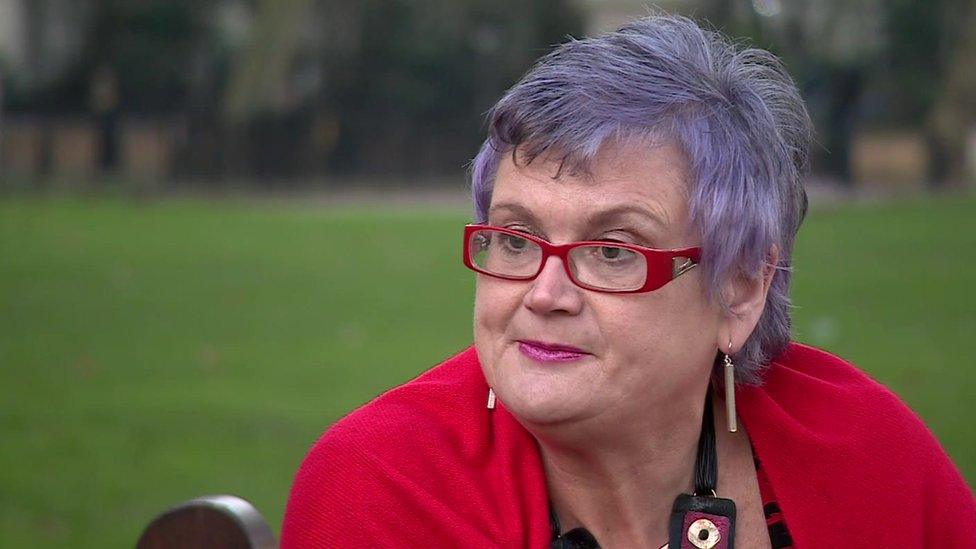
Carolyn Harris's mother gave birth to a stillborn girl in 1958
Her family believes the baby was buried with someone else but they were never told where.
Communal plot
After tracing a baby for a friend, Paula Jackson set up a website offering to help other families.
In the past 15 years, she has helped to trace nearly 800 babies through her charity Brief Lives Remembered, external.
Yvonne, one of the women Paula has helped, gave birth to a stillborn son 40 years ago.
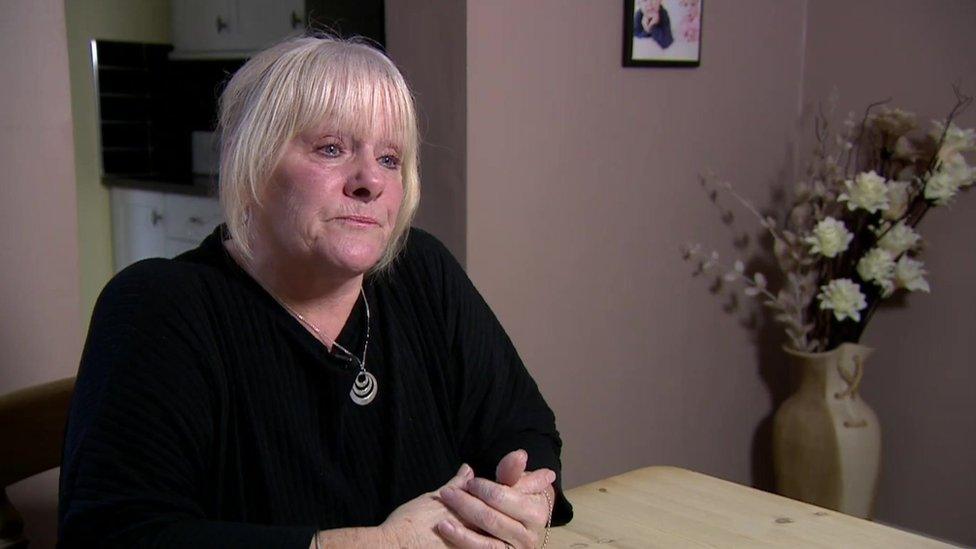
With help from Paula, Yvonne has now found her son's grave
"Why didn't I hold him? Why didn't I look at him? It was too late, he'd gone," Yvonne said.
"All I had was a priest come to see me and to say that he will have a proper burial. Next morning - ready to go home, that was it."
Paula said families were effectively asked to carry on as though nothing had happened.
"Fathers were often advised to hide any baby products at home to help with the healing process," she said.
"In some cases, men were also asked for money for the burial - some dads kept their receipt as their only memento.
"The bodies of babies were either cremated, buried in a communal plot or placed in the coffin of a woman who had recently passed away.
"This information was not always shared with either family."
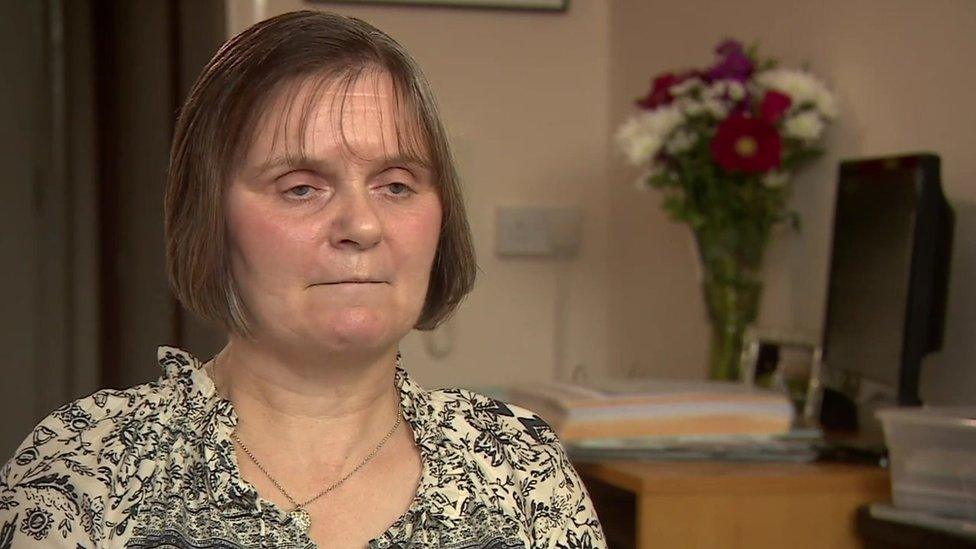
Paula has helped to trace hundreds of babies
Paula said the women were kept in maternity wards, surrounded by mothers and their new babies, and in some instances were asked to breastfeed when others needed help.
Left gravestones
In some military cemeteries, each baby was given their own burial plot.
And in Aldershot Military Cemetery - where Paula traced the first "lost" baby - each plot was identifiable by a green marker.
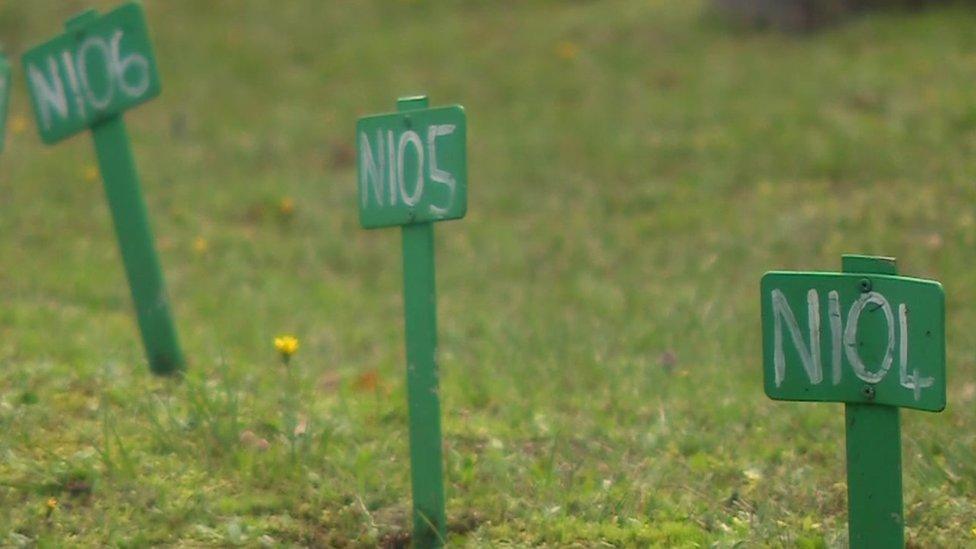
Numbers in Aldershot Military Cemetery mark baby graves
Some families have now traced their babies and left gravestones. Others are left nameless.
"When you look and you hear accounts of what happened in the past, it feels very cold, clinical and very disconnected," Melissa Whitten, a consultant obstetrician at University College London Hospitals, said.
'Post-traumatic stress'
Nowadays, families are taken to a separate room to grieve and spend time with their child.
Memory boxes are also provided, which include photos and hand prints.
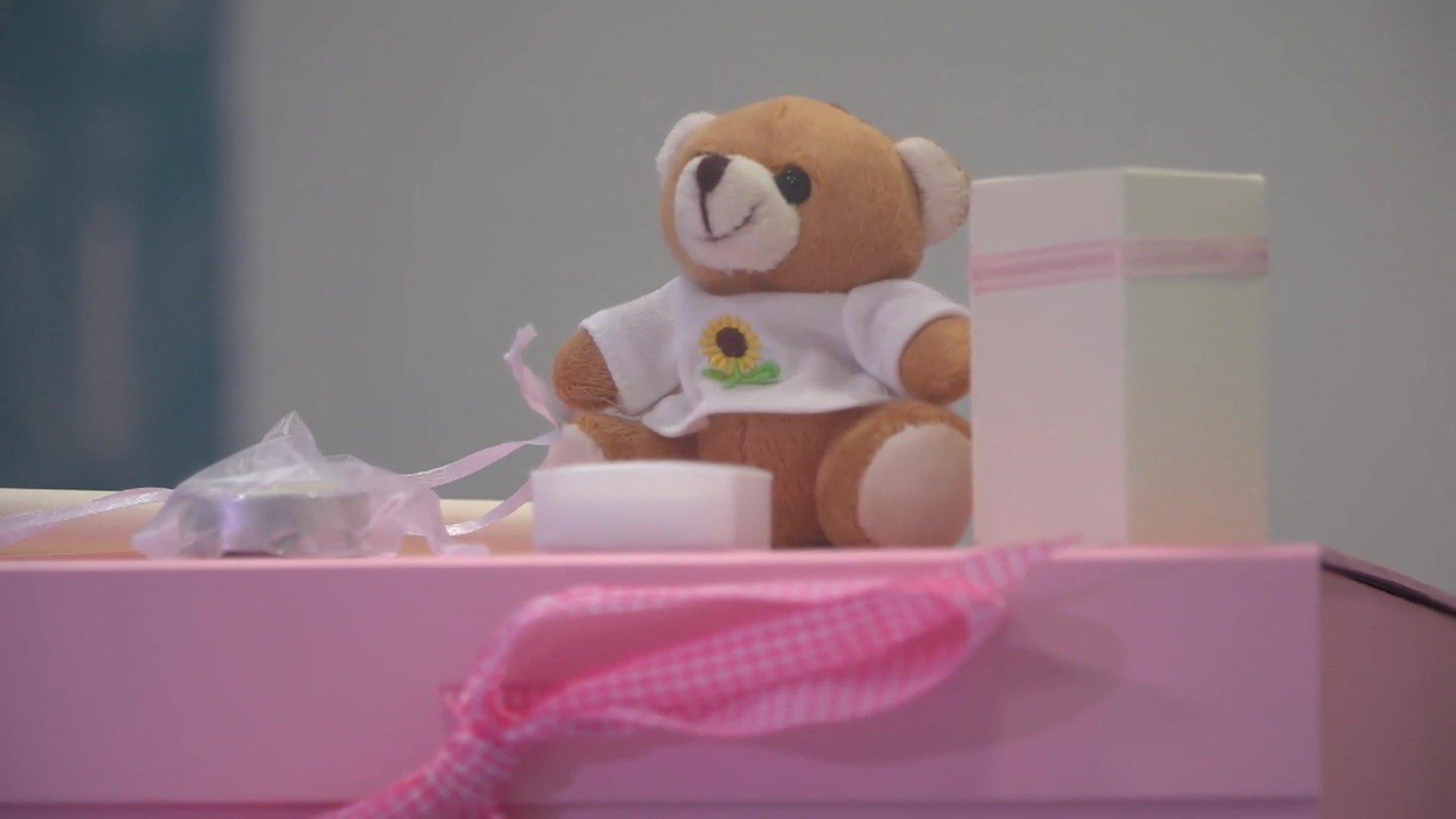
Memory boxes with photos and hand prints are encouraged nowadays
Carolyn Harris believes her mother suffered post-traumatic stress disorder.
"My mother was the most wonderful woman but she put a wall up after she lost my sister," she said.
"She was afraid that if she showed too much emotion, something bad would happen."
The MP's own son, Martin, died at the age of eight.
"I went to the grave site and I sat there and I talked to him for days," she said.
"There's the guilt, there's the anger, there's the regret. You need to talk it out."